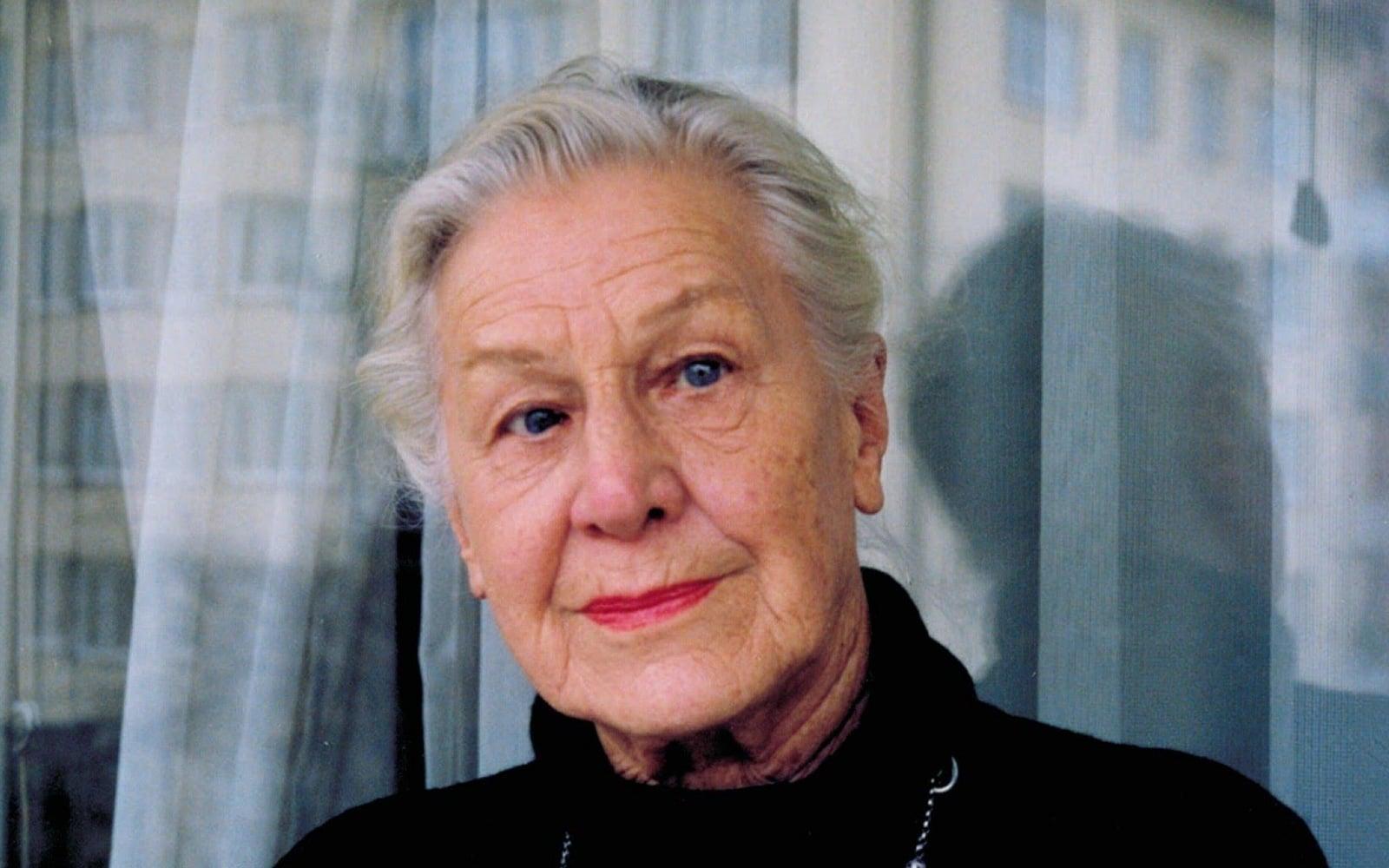Blind Spot: Hitler’s Secretary by André Heller (Review)

I went to the local arthouse theater to see Blind Spot fully expecting to come out depressed and saddened by the horrors of World War II and the Holocaust. So many movies that concern this time period bring up feelings of darkness because they reveal the brutality of seemingly ordinary individuals. However, what I saw that night was a story more complicated and subtle than most.
The film focuses on interviews with Traudl Junge, one of Hitler’s secretaries from 1942 until his suicide in 1945. The documentary does not follow the usual pattern of stirring music or moving montages. This is simply footage of Ms. Junge in her Munich apartment, talking about her experiences with Hitler. The sparseness of this production lends the movie a focused, raw power that challenges the audience to put aside their entertainment needs and really listen to the description of a woman’s life.
The Nazi Party hired Junge after she won a typing contest at the age of 22. She was excited to work for Hitler, since he was the Fuehrer, but she had no particular affinity for the Party itself. She describes herself as a naÏve, apolitical person who was simply taking a job that she considered exciting. Her first impressions of Hitler are striking for those of us who simply know him as a madman; she found him to be kind, respectful, and quite fatherly. She points out that she felt quite safe and comfortable around him from the outset of her employment until its very end.
Ms. Junge describes her experiences in the bunker that Hitler called home for several years. It was a close-knit community of high-ranking Nazi officials. There were several secretaries who served Hitler and company and they shared quarters and worked side-by-side. All was quite copacetic until the German army began to be soundly defeated by the Russians. As the Russians advanced on Berlin, the atmosphere in the bunker began to deteriorate. Hitler dismissed many of the officials, one person was executed for treason, and Hitler slipped into a deepening depression. All of the remaining staff who chose to stay were encouraged to keep cyanide capsules in their pockets in case the Russians invaded. Hitler talked more and more of his impending suicide.
Ms. Junge’s descriptions of life in the bunker reinforce that this was a cloistered world. She claims that she knew very little about what was going on outside, including the fact that millions of Jews were being exterminated. Her work was simply in taking dictation and she asserts that she only heard concentration camps mentioned once. She remained completely naÏve as to the true nature of the Nazi party throughout her service to Hitler.
Ms. Junge kept her story secret for many years by avoiding the press and refusing to complete interviews. This is the first time she has ever described her experiences. The filmmakers believe she chose to do so because she knew she was dying and wanted closure for herself through this message to the world. Ms. Junge died only hours after the premiere of the movie at the Berlin Film Festival.
The most interesting aspect of this film is the questions raised by Ms. Junge concerning her feelings of responsibility and guilt. Part of the reason she had kept quiet for so long was that she was shocked when she found out that the Nazis had killed so many people and had committed so many horrible acts. She became severely depressed and blamed herself for not seeing the truth while she was with Hitler.
She speaks of passing the statue of a young girl who stood up against the Nazi Party and was executed. When she saw the monument, she realized the girl was the same age she was when she began working for Hitler. She asks herself why she couldn’t see the truth and her only explanation is that living in the bunker was like living in a blind spot.
What I appreciated most about this movie was its way of presenting Ms. Junge’s story. No commentary takes place during the movie. How you feel about Ms. Junge comes from your own impressions of her and her words. I left feeling sad that she had lived her whole life with the guilt of her youth on her shoulders. However, her experiences do raise interesting questions of responsibility. Should she have inquired more about the Nazi Party before she decided to work for Hitler? Should she have stood up against Hitler when she heard him deliver slights against Jews in the public speeches she typed? Should she have left the bunker when she had a chance? How much should she be held responsible for the decisions she made as a 22 year old? Where is she culpable and where can we assume her actions were unintentional?
I would highly recommend this film to anyone who has the chance to see it. I doubt that it will be shown in most cities, but I assume at some point it will be released on video and made available wherever small, obscure, independent films are available. Unfortunately, this probably won’t be the local Blockbuster. The film gives us a different perspective on a history we feel we know so well. It also makes us second-guess the blatant labels of good and evil that we place on certain people. Life is so much more complicated than that and responsibility is such a slippery issue.
Written by Ruth Williams.
